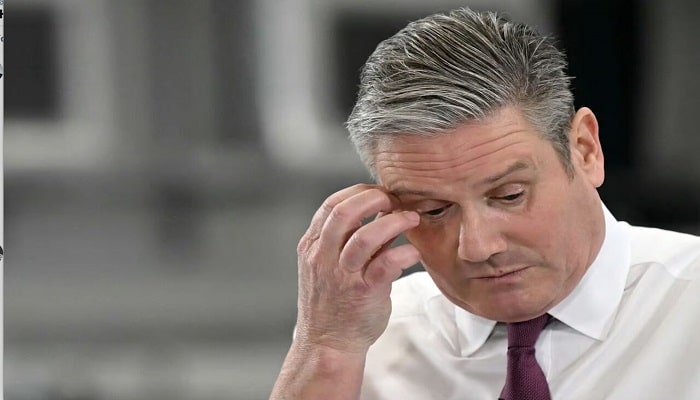PNN – The downward trend of the inflation rate in England has ended, while if this index is not curbed by the end of 2024, the “Keir Starmer” government will face the serious challenge of reducing public support.
According to the report of Pakistan News Network, the British National Statistics Center announced in its latest report that the consumer price index (CPI), a measure based on which inflation is measured, was 2.2 percent in August. This amount is similar to the previous month (July) and 0.2% higher than the ceiling targeted by the Bank of England.
Soft inflation in the UK after the country’s exit from the European Union (Brexit) and the Corona epidemic was on an increasing path, and finally in November 1401 due to the controversial economic policies of the 44-day government of Liz Truss, it reached the highest level in the last 4 decades, i.e. 11.1 Receipt percentages. Truss, who broke the record for the shortest-lived British prime minister, without financial backing, cut taxes in England to the lowest level in half a century, sending a heavy shock to the country’s financial market.
The Bank of England increased the base interest rate to contain the consequences of the disastrous policy of the Trust government, and this index went from 0.1% to 5.25% in two years. The decision of the Bank of England on the one hand reduced economic growth and on the other hand imposed a heavy cost on the mortgage installments of millions of households in England. As a result, a number of small businesses went bankrupt and many people became homeless.
Rishi Sonak, the former Prime Minister of England, who took over the government by canceling the economic programs of the TRS, put the inflation in a downward spiral and announced that if he wins again in the national elections, he will also raise the interbank interest rate, which is high due to the increase in inflation.
The inflation rate reached 2% on the eve of the elections, but at the same time, experts predicted that the “honeymoon” period of inflation will peak and this index will reach 3% by the end of this year. Because of this, the conservatives were defeated, and the Labor Party announced that it will take time to restore the country’s economic situation from the same July when it took over the administration of the government.
Keir Starmer, the new Prime Minister of England, said in a speech last month that the country’s economy is in a difficult situation and the situation will get worse before it improves. He pointed to a financial hole worth 22 billion pounds in the country’s general budget and said: My government’s economic plans will be painful because we are in a difficult situation economically.
He accused Sunak’s government of recklessness and said: It was only after winning the general election in July that my government discovered a financial hole worth 22 billion pounds in the country’s general budget. We took over the country from them in this dire financial situation because they avoided making difficult decisions during their tenure and instead turned to populism.
Of course, the British government has not yet provided documentation about the financial hole, and the credibility of this claim is questionable for public opinion. However, no one in England denies the fact that the country’s economy is not in a favorable state and all forecasts indicate that the situation will not improve until the end of this decade (2030). Brexit dealt a heavy blow to the British economy before the spread of the Corona epidemic, and according to estimates, this development damages the country’s economy by 100 billion pounds annually.
Ascending core inflation curve
The data of the British National Statistics Center show that although the inflation rate did not change in August, core inflation increased. Core inflation is a measure of inflation that does not include the price changes of some items that have high price fluctuations in its calculations.
According to the report of the British National Statistics Center, core inflation in August reached 3.6% with an increase of 0.3% compared to July. This fluctuation has been attributed to the increase in transportation costs, especially air travel in the summer season.

